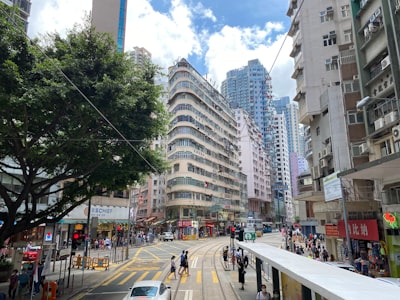Summary
At the 2025 South China Morning Post China Conference, former Hong Kong commerce chief Edward Yau Tang-wah, among other experts, emphasized that Hong Kong must evolve beyond its well-established role as a "superconnector" between mainland China and the global market. Yau urged Hong Kong to become a "value partner"—not just linking regions, but actively contributing to partnerships that create dependable, long-lasting business relations. Supporting this, Patrick Lau Hui-ping of the Hong Kong Trade Development Council stressed Hong Kong’s resilience in merchandise trade, noting the city’s continued importance in channeling and increasing the global market share of Chinese exports, even under challenging external conditions such as tariffs.
Analysis
Hong Kong’s role as a conduit for mainland Chinese trade and investment has long underpinned its economic prowess. However, simply "connecting the dots" risks rendering Hong Kong dispensable, especially amid rising geopolitical tensions and debates over global supply chain security. Yau's distinction between connecting and adding value suggests a strategic pivot is needed: Hong Kong should not just facilitate transactions but embed itself deeper in innovation, compliance, financial services, and partnership-building that competitors cannot easily replicate.
Politically, the call to become a "value partner" acknowledges that the city's tried-and-tested playbook is under strain. U.S.-China friction, the rise of alternative hubs, and evolving trade patterns threaten Hong Kong’s legacy advantages. Economically, resilience in trade—especially amid tariff headwinds—is significant, but the city must avoid complacency. Missing from the discussion, however, is elaboration on how Hong Kong will deliver this extra value, or the potential challenges in redefining its role while maintaining both autonomy and China alignment.
Discussion
The conversation around Hong Kong’s future is both urgent and emblematic of the broader fate facing traditional intermediaries in a rapidly shifting global order. Many cities—Singapore and Dubai, for example—face similar pressures to remain relevant, often by advancing tech, regulatory robustness, or new forms of partnership. For Hong Kong, moving up the value chain might include leading in green finance, dispute resolution, or acting as a center for cutting-edge R&D.
Yet, critical questions remain. Can Hong Kong maintain its unique "one country, two systems" allure to investors and innovators post-COVID and National Security Law? Will political uncertainties deter meaningful partnership building beyond transactional ties? Or might its distinct position—straddling East and West—enable new forms of collaboration, precisely because of its hybrid identity?
Ultimately, the path Hong Kong chooses will not only define its economic significance, but also its social and political fabric. The stakes are high—not just for business, but for the city’s vision of itself in a contested world.

Comments
No comments yet. Be the first to comment!